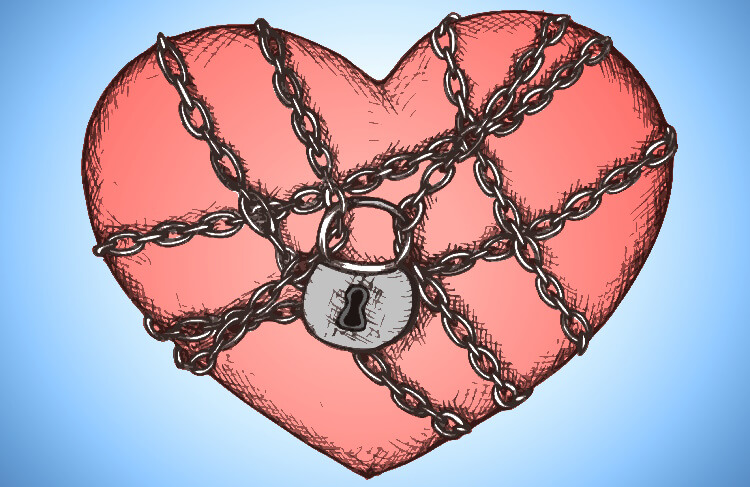The term’ sex addiction’ can often bring to mind the womanising characters seen on TV, such as Barney Stinson from How I Met Your Mother or Don Draper from Mad Men. On screen, their behaviour is framed as charm or indulgence. But in reality, hypersexuality isn’t about arousal; at its core, this condition is about compulsion, secrecy, and emotional escape, which is difficult to navigate and overcome without professional support.

Having an addiction to sex involves a pattern of behaviour where sexual activity is used to manage pain or stress, rather than a source of connection or pleasure.
What people commonly get wrong
A large part of the confusion around sex and love addiction comes from language. As with most dialogue surrounding mental health, common phrasing can be misleading and misinterpreted. Society tends to associate addiction with substances, such as alcohol, drugs, or nicotine, rather than behaviours.
The influence of media on hypersexuality
Much of the rhetoric around sex and love addiction doesn’t come from science; it comes from stories. Process addictions such as sex aren’t taught at school, and the definition is still debated in the medical world, so the most access we have to this condition is through media portrayals. The concept can be tied to womanising characters in sitcoms, who are often portrayed as charming, sexually confident, and unattached men who use sex freely and without consequence. When their behaviour crosses into destructive territory, it’s usually framed as entertainment, not pain. The result is that compulsive sexual behaviour becomes glamorised, and sometimes even admired.
As this disorder is so misunderstood and those suffering from it may not even realise the reasons for their behaviour, the way films, television, and celebrity media talk about sex and relationships has done more to define public opinion than clinical research has.
Gender disparity in sex addiction
For women, the opposite typecast presents itself: the same patterns of behaviour in media are more likely to be labelled as ‘obsessive’, ‘needy’, or ‘unstable’. This cultural double standard has been widely documented in research on gender and sexual stigma. Over 30% of sex addiction cases are made up of women. Yet, in a topic that is already highly stigmatised and unfairly dismissed as an excuse for chasing desires.
Both of these cases are harmful to mental health conversations, as they stunt encouragement for those living with an addiction to sex to speak up.
The role of porn access in compulsive sexual behaviour
The porn industry and the ease of digital access to sexual content online make it easy for people to feed their addiction to sex. For many, porn functions as harmless entertainment; for others, it becomes a coping mechanism to manage anxiety or loneliness. These are the same emotional drivers seen in other forms of addiction.
Despite these risks, pornography is rarely discussed within the context of addiction. Because it is so normalised, many people struggle to recognise when viewing habits have become compulsive. This normalisation blurs the line between healthy sexual expression and sex dependence.
Dr Paula Hall, a sex addiction expert, explained in a TED Talk: “You can’t drink alcohol for eight hours a night and not notice the consequences – but you can view porn… Unlike other addictions, sex addiction often has no visible consequences until it’s too late.” It’s already difficult for people to imagine how severe compulsive disorders are, and if they do, it’s most associated with health decline or physical withdrawal symptoms. Because sex and love don’t fit this image, they’re often dismissed as exaggerated or self-inflicted, rather than a side-effect of underlying trauma.
Why these misunderstandings matter
When society misunderstands a condition, the people living with it pay the price. For those struggling with compulsive sexual behaviour, that price is often silence.
Many people delay seeking help because they fear being ridiculed or not taken seriously. We at The Haynes Clinic know from our own experiences with addiction, and from relationships with our clients, that people suffering from hypersexuality often feel guilty about their actions, which prevents them from speaking openly. This is reinforced by the broader public narrative – when addiction is framed as selfishness or judged behaviour, people internalise that blame. They stop seeing their behaviour as something treatable and start seeing it as something to keep hidden.
Due to this, relationships can unfortunately break down, not because of the addiction itself, but because of secrecy and fear of ‘shameful’ behaviours being found out. Partners may misinterpret the behaviour as rejection, betrayal, or lack of love, when it’s often driven by anxiety and a loss of control.
While the harsh realities of sex addiction can blur into media depictions and assumptions, we’re here to talk openly and support conversations that empathise and support anyone who is using sex as a form of compulsive distraction.
If you find yourself struggling to talk about dependence on sex or would like to confide in someone about concerns for yourself or a loved one, call us today for confidential and expert advice.
